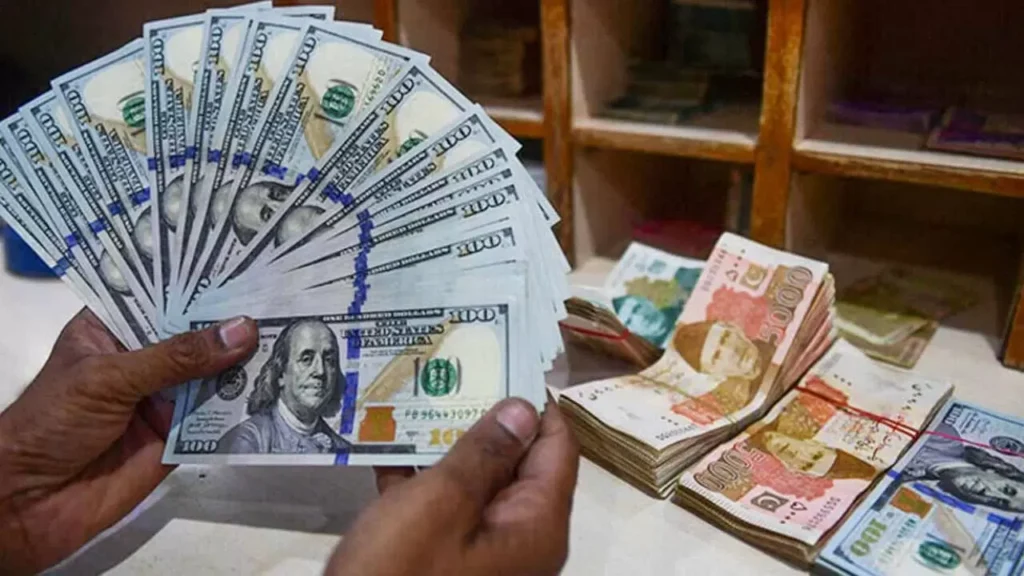- Web
- Feb 05, 2026
Improving PKR-USD parity leads exporters to offload greenback
-

- Web Desk
- Apr 05, 2024

Exporters in Karachi are swiftly offloading their dollars, citing concerns over potential depreciation of the US currency, leading to a surplus of the greenback in banks, Dawn news reported on Friday.
This move comes amidst a notable surge in export proceeds flooding the currency market, pressuring exchange rates, according to industry insiders.
IMF grants Pakistan $3 billion “overall” as part of latest SBA
Some banks, dubbed as export banks due to their extensive network of exporters, are witnessing a notable uptick in dollar inflows from these exporters. Experts are also hinting at further devaluation of the USD which exporters are keen to avoid.
The Pakistani rupee has shown signs of strengthening against the dollar over the past three months, closing at Rs 277.93 yesterday (Thursday), marking a decrease of around Rs 3 in the interbank market during this period.
Additionally, forward premiums for six-month and three-month currency exchange rates have seen significant declines, dropping to Rs 14 and Rs 8 per dollar respectively within the fiscal year.
In response to these developments, the government is taking steps to mitigate further dollar depreciation to support exporters. Importers, foreseeing potential future costs, are securing dollars at adjusted premiums for varying periods to manage their import requirements.
Govt to award ‘Pakistan Honorary Cards’ to top taxpayers
Furthermore, banks are adhering to the State Bank of Pakistan’s (SBP) directive to provide dollars to importers only when funds are available in their accounts. This policy has led to reduced imports, contributing to decreased trade and current account deficits, with importers still facing restrictions on certain essential and non-essential imports.
Despite the State Bank of Pakistan (SBP) expanding the list of essential imports, importers argue that restrictions have significantly impacted economic growth. Pakistan heavily relies on imports of raw materials for its domestic and exportable products, with low imports and high inflation leading to reduced consumption and negative growth in the previous fiscal year.
The SBP reported a $19 million increase in reserves to $8.04 billion, attributing the improvement to dollar purchases from the interbank market, a common practice for the central bank. The country’s total foreign exchange reserves have reached $13.38 billion, including $5.34 billion held by commercial banks as of the week ending March 29.
SBP’s forex reserves climb to $8.04 billion
Anticipated inflows of approximately $1.2 billion this month, as the final tranche of a short-term loan agreement with the IMF, are expected to aid the SBP in managing outflows, including the repayment of $1 billion against maturing Eurobonds due in mid-April. Additionally, higher remittance inflows during Ramazan are anticipated to support foreign exchange reserves and exchange rates.




